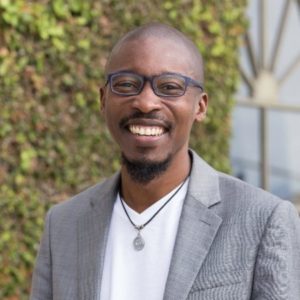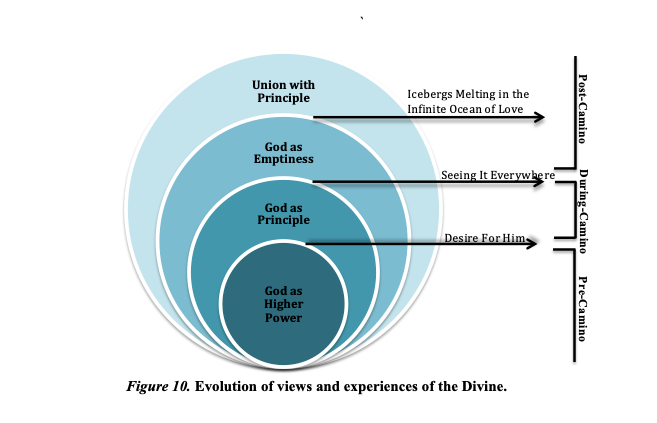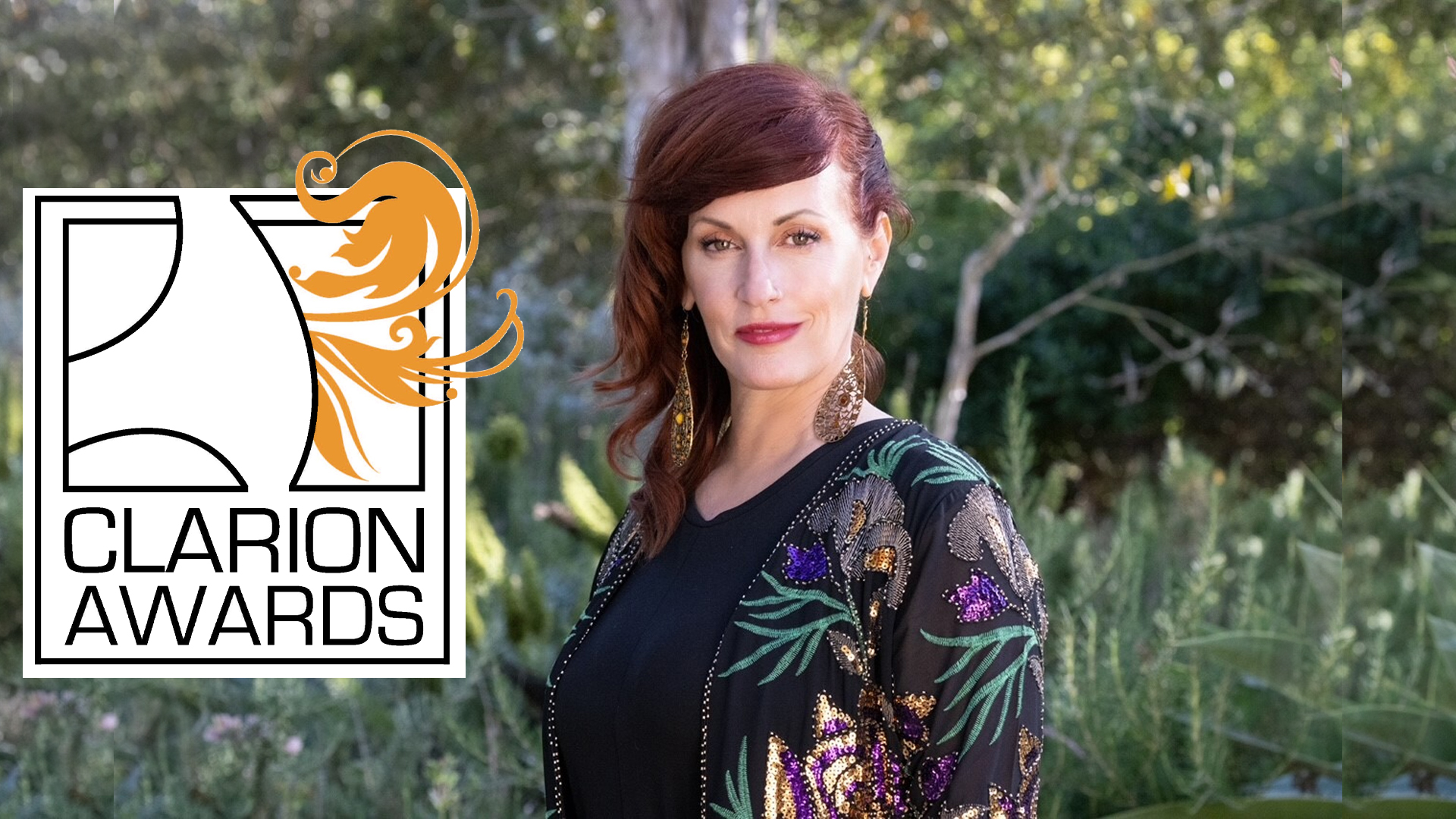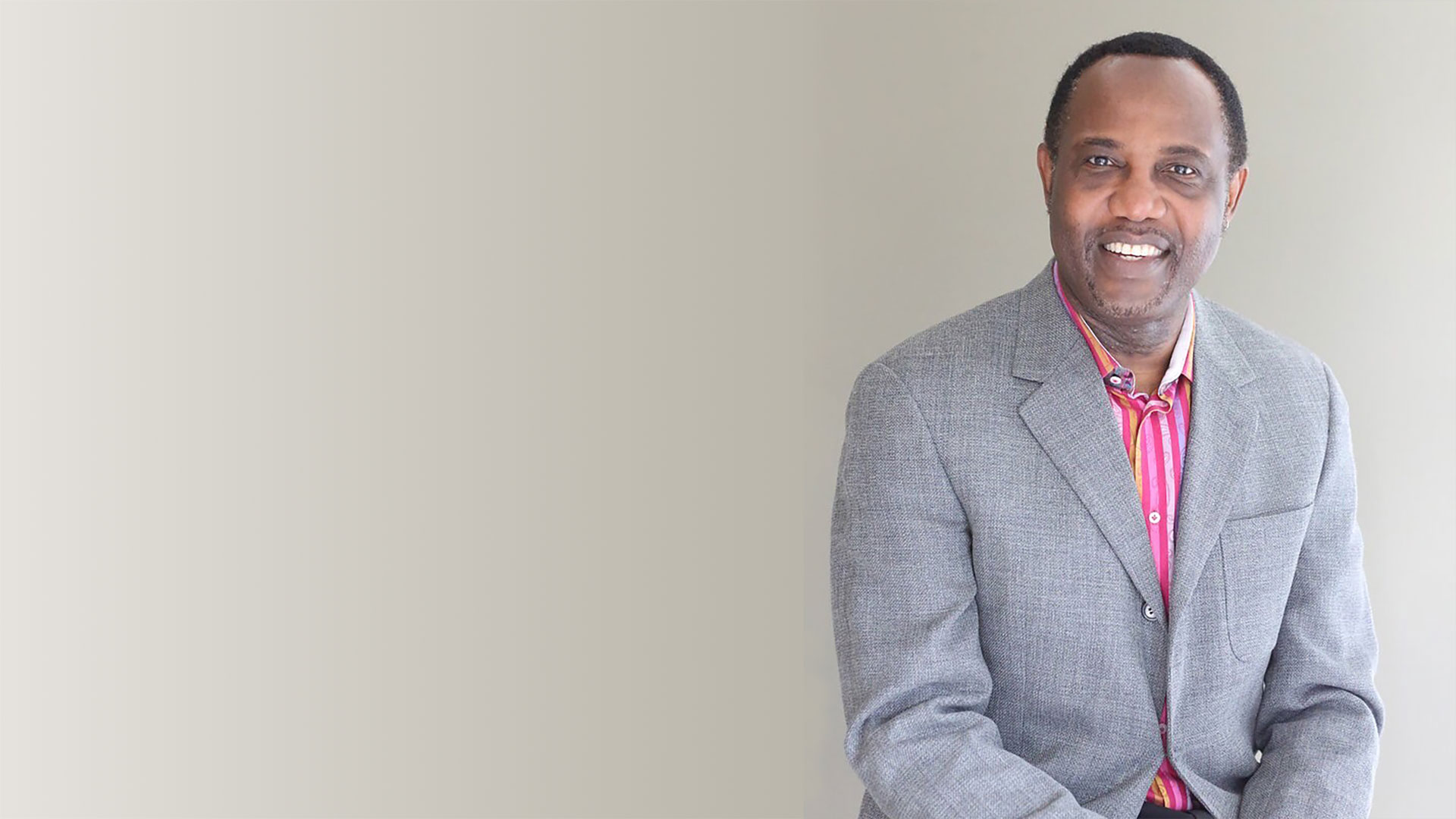Guest Blogger: Akasha, PhD, PCC, Contract Instructor in Fielding Graduate University’s Evidenced Based Coaching (EBC) Certificate program.
 A few years ago, when I was at a different stage in life, I believed that God was a being that had a permanent home somewhere in the heavens. During this time, I was working with an ontological coach. One of my goals was to connect more deeply with myself. So, I developed a practice with her to write a poem everyday. Each morning, I would sit still in silence and listen for a message from the deepest parts of my being, my soul. I would then post these messages on a blog I started (see it here, if you’re interested – http://pathtobeing.org). I felt that the reason for and source of these messages was God, or big Soul. I shared this assessment with my coach who tried to convince me that I was wrong. She said, in the kindest way, “That’s not God. I believe you simply made a strong commitment to do something that is meaningful to you.” I felt slighted, judged, and unsupported. Again, this was during an earlier (developmental) stage of my life.
A few years ago, when I was at a different stage in life, I believed that God was a being that had a permanent home somewhere in the heavens. During this time, I was working with an ontological coach. One of my goals was to connect more deeply with myself. So, I developed a practice with her to write a poem everyday. Each morning, I would sit still in silence and listen for a message from the deepest parts of my being, my soul. I would then post these messages on a blog I started (see it here, if you’re interested – http://pathtobeing.org). I felt that the reason for and source of these messages was God, or big Soul. I shared this assessment with my coach who tried to convince me that I was wrong. She said, in the kindest way, “That’s not God. I believe you simply made a strong commitment to do something that is meaningful to you.” I felt slighted, judged, and unsupported. Again, this was during an earlier (developmental) stage of my life.
This experience with my former coach taught me the importance of curiosity and of exploring my clients’ meaning-making location instead of imposing my own beliefs and meanings on them. What my coach did, albeit in a well-meaning way, was to trump my beliefs and meanings with her own. She made her worldview superior to mine. This was a bit tricky partly because of our cultural differences. She is a White American non-Christian. I am an Afro-Caribbean and was a Christian at the time of our coaching relationship. There are two things to consider here. The first is that any hint of superiority from White coaches when working with clients from cultures with a history of being colonized can lead to clients feeling silenced, dominated, and terrorized. These experiences lead to a disempowered client and coaching interaction.
The second thing to consider here is that religion and spirituality are important to Afro-Caribbean, as well as African American people (Wheeler, Ampadu, & Wangari, 2002). Many of us relate to our religion and spirituality as an essential component of who we are. That means that this topic will likely show up in coaching conversations with Afro-Caribbean clients. If it does not, I would be curious about why. The views around god and spirituality will show up differently for different clients, partly because of their stage of development as explained by Kegan (1994), Cook-Greuter (2013), O’Fallen (2010), Ken Wilber (2017), and others in their respective developmental models.
In addition to being curious about our clients’ goals, behaviors, perspectives, beliefs, and assumptions, it is important to take their developmental stage into consideration. Professional coaches also coach to clients’ meaning-making capacity and often slightly beyond. Take religion and spirituality, for example. I found from my own dissertation study on spiritual awakening experiences related to walking the Camino de Santiago (Saunders, 2018), that my views about God changed at least four times over a one-year period that covered three months before, the five weeks during, and up to eight months after walking the Camino. See the changes illustrated in the figure below.
 |
Our clients will likely experience shifts in meaning-making locations, particularly when in conditions that are disorienting, personally salient, emotionally engaging, of an interpersonal nature, and includes some mindfulness practices. This means that their views about God will change over time. Irrespective of what those views are, clients might be subject to them and may not yet have the capacity to make them object and critique them. That is a part of our role as their coach. It is not to dismiss their views, but to be curious about them and humbly invite our clients to reflect on them. Again, this is especially true for Afro-Caribbean clients. If you coach or are likely to coach someone from the Caribbean, consider expanding your knowledge about Christianity, Afro-centric spirituality, and colonization and its effects. There are also some helpful questions to ask Afro-Caribbean clients, such as: What are your spiritual beliefs? How do you describe the origins of your spiritual beliefs and practices? What’s the deepest longing in your soul? How do you experience God? What do you know about God? How might you be wrong about that? What unanswered questions are you asking about God? About your identity? About your spiritual life?
Cultural humility and awareness, as well as understanding of constructive developmental theory are essential skills and knowledge for efficacious coaching across differences. That is why these are important components of Fielding’s Evidenced Based Coaching Certificate program. Furthermore, an understanding of spirituality and related models and assessment tools such as Wigglesworth SQ21 (2012) can help us meet our clients where they are at and also serve their developmental and soul needs.
References:
Cook-Greuter, S. R. (2013). Nine levels of increasing embrace in ego development: A full-spectrum theory of vertical growth and meaning making. Zugriff am, 18, 2015
Kegan, R. (1994). In over our heads: The mental demands of modern life. Cambridge, MA: Harvard University Press.
O’Fallon, T. (2010). The evolution of the human soul: Developmental practices in spiritual guidance. Lorian Center for Incarnational Studies.
Wigglesworth, C. (2012). SQ21: The twenty-one skills of spiritual intelligence. New York, NY: SelectBooks.
Wilber, K. (2017). The religion of tomorrow: A vision for the future of the great traditions-more inclusive, more comprehensive, more complete. Boulder, CO: Shambhala Publications.
Wheeler, E. A., Ampadu, L. M., & Wangari, E. (2002). Lifespan development revisited: African-centered spirituality throughout the life cycle. Journal of Adult Development, 9(1), 71–78. https://doi.org/10.1023/A:1013881302284.
Saunders, P. (2018). Waking Up While Black: How A Jamaican Border-Dwelling Bredda Makes Meaning of His Camino De Santiago Pilgrimage (Doctoral dissertation, Fielding Graduate University).
Akasha, PhD, PCC, is a pilgrim, educator, and developmental coach with over 10 years of professional experience. Through an approach guided by love, mindfulness, and transformative change he accompanies his clients on a journey to realizing and expanding themselves. He is a contract instructor in Fielding Graduate University’s (FGU) Evidenced Based Coaching Certificate program. He works as a consultant and coach with Solfire Consulting Group, helping to foster inclusive leadership development. Akasha holds a PhD in Human Development from FGU. He is ever on the move and spends time between Grenada and Bermuda with his family and their protective cockapoo dog. https://www.linkedin.com/in/peteasaunders/
For more on Fielding’s EBC Coach Training Program, see http://coach.fielding.edu
#coach #ebc #fielding #coachtraining #coaching #evidencebasedcoaching
Join Over 7,500 Fielding Alumni Located Around The World!
Change the world. Start with yours.™






Get Social